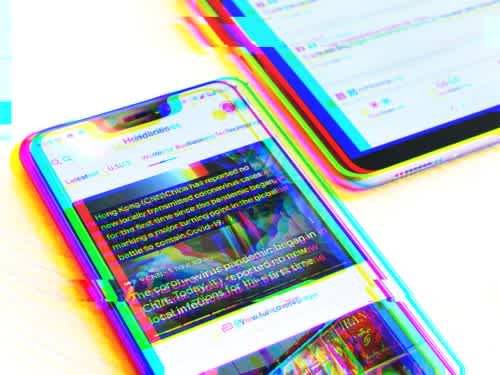There’s no way around it: work is changing. However, regardless of what hundreds of uninformed articles will argue on the matter, working itself is not going away anytime soon, however worthy of our time that discussion may be. Work is, in fact, ever-changing, ever-evolving, always progressively, never at once, as we create new problems just as fast as we solve old ones. Case and point: technology has allowed us to “invent” the Gig Economy, which has led to the creation of an entirely new industry of frankly terrible jobs.
So, if work won’t disappear, but roles will evolve because of technology, demographic shifts, urbanisation, scarcity, climate change… what career should our kids aspire to jump into once out of Space University? Back in my days, professional gamer and YouTuber were not an option, but those professions now bring millions to the youths talented and dedicated enough to fulfil those roles, with many kids aspiring to walk in their idols’ footsteps. Clearly, anything is possible.
With that in mind, below are 18 jobs of the future that are likely to become reality within the next 30 years.
The new platforms jobs of the future
1. Edge Computing Manager
When will IoT go from the realm of high-tech R&D to that of low-end stores? In 5 years? 10 years? Probably less. Either way, when the technology becomes democratised, someone will need to be in charge of answering the following key questions, and more: which object to connect? Does a connected T-shirt really answer a specific needed? Which data is interesting from a business standpoint? What infrastructure will need to be adapted? Created? What long-term business impact is expected? What UX for those connected objects? What about legacy systems? An Edge Computing Manager should know how to answer these questions when the board of directors comes a-knocking.
2. Digital Store Guide
Imagine Amazon.com was a physical market. How large would it be? How lost would we get? How many sales advisers would we need to satisfy everyone? Common sense (and dozens of strategy books) tells us that the greatest advantage stores have over digital channels is their staff. It’s only logical, then, that as platforms become increasingly ubiquitous, digital brands and platforms recruit personal shoppers/Digital Store Guides to turn an often-frustrating online shopping experience into a pleasant stroll for those able to afford such a service.
Stop me if you’ve heard this one: the rich get personalised help and the poor get a non-functioning chatbot.
3. Augmented Reality Storyteller
Virtual Reality hasn’t delivered all that was promised (yet). Augmented Reality, however, is all the rage, and probably will continue to be. As the experience economy and the concept of gamification gathers steam, it is only logical that we ask our augmented reality experience to have a great storyline one might learn grand lessons from. This is where the storyteller comes in. This job will allow entities to create both immersive training scenarios (military and corporate) and hard-to-spot marketing opportunities.
4. World Builder
Virtual Reality may have under-delivered, but it’s not dead yet. Once we’ve built our story-lines (see above), we need to create entire worlds (think Ellen Page in Inception). This role requires many of the same skills asked of video-game designers, except with a potentially entirely different endgame. Here again, the potential for training are endless, but the psychology angle is also a fun one to imagine: why slay inner demons when you can pretend slay them in the digital world?
5. Ad-Blocking Expert
Edge Computing, Digital Stores, AR, VR… All these technologies will create a whole new world for advertisers. That’s just how we roll. And as soon as we get tired of the novelty, we��’ll want ad-blockers, who will have to be advanced enough to spot adverts embedded within reality itself, where only AR glasses could spot them, for example.
“Ad-blocker for your fridge”… the headlines just write themselves.
The new legal framework jobs of the future
6. Ethics Officer
Companies are increasingly taking a stance to counteract governments’ failures. This trend is likely to continue given the increasing proximity between companies and their customers (if their adverts are any indication, Zara knows me better than I know myself). In this new corporate world, the Ethics Officer would hold a role similar to the modern CSR Manager, except that they’ll actually be taken seriously within the organisation as they’d be dealing with CFOs and CTOs on a regular basis.
7. Trust Officer
Trust is about to become a VERY big deal, as we’ve already begun to see in the age of “Fake News”. As such, it doesn’t seem too far-fetched to hire someone who would be responsible for ensuring that customers know they can trust the corporation with their private data, savings, secrets, loved ones… Much like PR but taken seriously. As it stands, I only trust my barber and my bartender, so corporations clearly have a lot of room to improve in this area.
8. Personal Data Representative
This role is linked to my dream of inventing a system whereby companies would pay for the data used to power job-crushing algorithms, bringing back a bit of fairness to the economy.
A PDR would be a person or company which would legally represent the entirety of someone’s data and invest it in the right databases to get its customers better returns. It would be in the PDR’s best interest to make sure no one uses his or her customers’ data without legitimate interest or consent, making the role doubly useful. It would also help implement a basic framework for the portability of data, which is increasingly a legal requirement, thanks to renewed anti-trust interest.
The New A.I Jobs of the future
9. Data Investigator
As I’ve mentioned over and over and over, algorithms should be able to explain their underlying mechanism in simple terms. This becomes even more important as AI becomes embedded in everyday life, including within the justice system. I believe there should be a button next to adverts on Instagram that says, “Why are you seeing this?”.
This won’t happen.
What MIGHT happen is the creation of a role which entails rummaging through code in order to find why that car swerved onto a group of pre-schoolers instead of hitting a pregnant woman.
Good luck.
10. Data Detective
Whereas a data investigator answers questions that HAVE been asked, a Data Detective (such a cool name) would generate answers to questions that were not necessarily asked by digging into the data produced by new technologies such as the Internet of Things. Does being out of milk lead to a rise in crime? Does an increase in drones mean a decrease in pigeon birth?
I don’t know, but I’d like (someone else) to find out.
11. Predictive Customer Service Agent
Yes, call centers do already exist, but with the rise of Big Data, I believe some of the most advanced companies might want to stop being reactive to their customers’ issues and start being proactive. Based on customers’ profiles, their shopping habits, and the rate of quality issues with a product, divining whether or not the customer has a problem with a product or a service may not be as difficult as it sounds.
And giving a call a day before one’s oven statistically goes on the fritz sounds like a lot untapped revenues to me.
The 'bridge-between-worlds' jobs of the future
12. Man-Machine Collaboration Analyst
Automation is likely to impact a significant percentage of jobs in the very near future (do I hear 51%?). But there are still so many questions to answer before fully handing the reins to robots and algorithms. Who and what do we pair? Who do we automate? When? Do we enhance or replace? As augmentation becomes ubiquitous, answering these questions will be key within most industries. Economists and sociologists should be the ones un charge of crafting relevant responses, but I wouldn’t be surprised if consultants we left to do it instead.
Yay.
13. IT Facilitator
we’ve all noticed it: IT and operations need to learn to better communicate. Yet, speaking both languages is a rare talent, as is combining business necessities with technological/technical abilities and hardware budgets. This would be the role of the IT facilitator, which ought to put PMOs out of their miseries. Expect the chosen few to lead a highly rewarding financial life.
14. Workers’ Champions
Finally, once we’ve decided what and who to automate, and both the IT and operational parts of the company have agreed on a way forward, there still needs to be a way to fairly and tactfully inform the workers of the new strategy. And depending on the industry, these workers may not be the most technologically savvy crowd. Or the most understanding. This is where the Workers’ Champion comes in. For proof that this role is necessary, Google worker cages.
Yes, I’m pretty much saying unions should make a comeback. It’s about damn time, too.
The new cities jobs of the future
15. Smart City Analyst
City planners are becoming cool again! With the increasing use of smart cars, drones, post-Covid office space optimisation… their help will be sorely needed. For example, if cars can now park themselves outside the city without a driver, do we need so many parking spots? If I have data from every mobile in town, can I predicatively send more, or less police or firemen in an area? The possibilities are endless., but they need to be weighed carefully: the way we design cities today will impact the world for the next 50 years.
16. Conservationist
As cities grow, evolve and get a higher IQ, we will be forced to make away with parts of the past. It will be the Conservationist’s job to digitally preserve images and blueprints from roads and buildings, so that our past may forever continue to inform our future.
This role already exists, in fact, but on a much smaller scale : it’s difficult to put a whole building in a museum.
17. Remote car mechanic
As cars become more automated and more connected, will we always need to go see our mechanic for every little issue? Probably not.
If all the talks of digital twins are legit, we may soon see a lot of currently client-facing roles become more remote. I’d wager mechanics go with the first wave.
18. Microgrid analyst
As renewable energy becomes more prominent, every house is likely to produce power for its own use. However, should someone go on holiday, that energy might go unused, and could be sold to a neighbour having a party who needs more electricity for the Prince hologram he’s planned to unveil.
That’s when the Microgrid Analyst would come in, making sure energy is used as efficiently as possible on a much smaller level than what we’re currently used to, but with a much higher number of energy sources going to more places.
Conclusion
Other jobs will see a renaissance, such as concierges (mo’ parcels mo’ problems) and craftmanship roles (with the advance of certain technologies, economies of scale aren’t as necessary as they once were). Others will become increasingly important (healthcare and education). Finally, some won’t change but will be enhanced: caregiving, banking, nursing, training, R&D, HR… they could all become augmented, and many have already begun that journey.
My kids will be born in a complicated world. A hostile world, at times. A warming world, more worryingly. One can only hope they will find their way in this mess and choose a career that will ensure their survival and happiness in the confusing years ahead.


